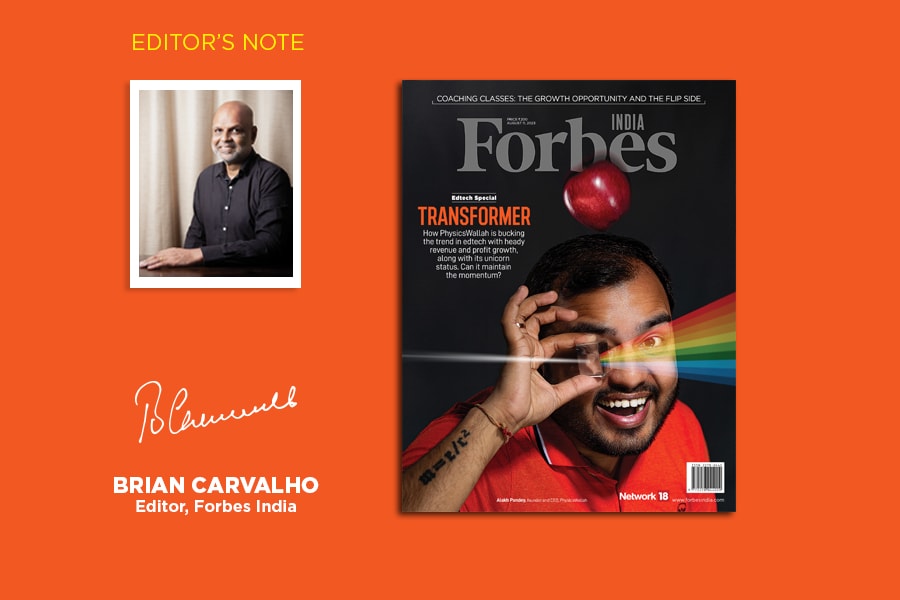
Is this the end of edtech as we know it?
Is this the beginning of the end of edtech? Perhaps it's the end of the sector as we knew it, but not the end of what edtech should have been in the first place. This fortnight, Forbes India's steadfast startups tracker Rajiv Singh dives deep into edtech, to figure what's still going right with the sector

A line that became a truism during the Covid-19 lockdowns was that the pandemic-induced changes in consumer behaviour were here to stay. The opinion was that many of the activities we did online—working, buying, transacting, medicating, playing, learning among others—would mostly persist post pandemic.
Work today is, at best, hybrid; ecommerce continues to thrive on the pandemic-initiated momentum, as do gaming, streaming and transacting. But if there’s one sector where the online prognosis hasn’t quite played out, it is education. It was easy to forget the benefits of classroom learning during the pandemic. But student-teacher interaction, the value of physical activity on the campus and discipline that regular attendance brings with it are vital elements of a sound education. All these were back once teachers and students came back to school.
So, rather than the physical classroom being consigned to the history books, it’s a clutch of once-fancied edtech startups that are staring at uncertain futures. Coinciding with the back-to-school realignment was the drying up of the funding taps that had generously opened during the pandemic. Result? The growth engine began to sputter for breath. As the sea of red ink spread across balance sheets, layoffs became the new mantra and transparency, governance and cautious bookkeeping went out the window.
Is this the beginning of the end of edtech? Perhaps it’s the end of the sector as we knew it, but not the end of what edtech should have been in the first place. This fortnight, Forbes India’s steadfast startups tracker Rajiv Singh dives deep into edtech, to figure what’s still going right with the sector. His verdict: “The era of greedtech is over. Edtech is here to stay.” Those who aren’t crippled by the obligation to grow irrationally and who don’t attempt to replace the classroom but complement it will be around for some time, he adds. And, yes, you don’t have to attempt rocket science; instead, gauge what’s a mass need, and innovate around that.
Consider, for instance, the business model of the Y Combinator-backed Spark Studio: Good old spoken English and public speaking. The two-year-old startup clearly doesn’t believe in running with the herd. Just when everyone’s screaming offline is back, co-founder Anushree Goenka insists “online education is the future”. Particularly in smaller cities and some foreign countries. Spark Studio is now building a personal AI English tutor. For more on its offline-online blend, turn to ‘Business? In English, Please’.





